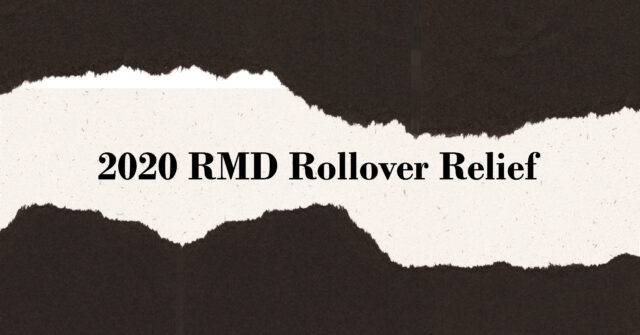Bulls’ Optimism Fuels Nasdaq Record High

July 10, 2020
Bulls continued their record-setting run this week despite rising Covid-19 infections and hospitalizations across the country. According to data from Johns Hopkins University, 63,247 new Covid-19 cases were reported nationwide on Thursday – a single day record. Several states also saw an increase in hospitalizations with Texas and Florida nearing hospital capacity limits. Although the news dented enthusiasm for reopening, investors have remained confident in the equity market overall, continuing to scoop up growth and work-from-home plays such as Microsoft and Amazon. The continued momentum in tech-oriented names helped push the Nasdaq Composite to an all-time high of 10,617.44. Meaningful economic news for the week was relatively light with data on services and jobless claims being the highlights of the week. Powered by the mega-cap names, the S&P 500 rose 1.76% for the week.
Back in Service
The service business roared back to life in June as restaurants, dentists, and other hospitality businesses reopened their doors. The ISM Services Index surged to 57.1, up from 45.4 in May. Numbers above 50 indicate expansion, while numbers below 50 indicate contraction. June’s reading was the single biggest increase since the survey was created in 1997. It was also the highest reading seen since February before states began shutting down businesses. The significant bounce is not surprising since the economy was coming off a low base. However, it looks like the momentum will be difficult to sustain as 33 states grapple with a surging Covid-19 caseload which has prompted several to rollback their re-openings, shut down bars, and limit capacity at restaurants in an effort to contain the virus’s spread.
Jobless Claims Decline
Jobless claims continued to decline, down 99,000 from the previous week to 1.314 million. More encouraging was the 698,000 drop in continuing claims, which represent individuals who have been collecting unemployment benefits for at least two weeks. The decline suggests businesses are indeed rehiring workers as they reopen their doors, which is helping chip away at the overall unemployment rate. The jobs report, which was released last week, showed the unemployment rate dropping to 11.1% in June from a pandemic high of 14.7%.
Despite surging Covid-19 cases in the U.S., the market is growing increasingly confident that the infection timeline has been sufficiently stretched such that the residual stimulus and anticipated medical solutions will coalesce to avoid a deep economic retrenchment. Gilead Sciences announced encouraging news this week related to its coronavirus treatment candidate, remdesivir. The treatment reportedly showed an improvement in clinical recovery and a 62% reduction in the risk of mortality compared with standard of care. On the vaccine front, BioNTech told the Wall Street Journal that its coronavirus vaccine candidate could be ready for approval by December. The positive announcements on treatment and vaccine development is a sharp contrast to the deteriorating short-term outlook as hospitals strain under the rising, daily patient load. There remains a legitimate risk that much of the economic progress over the last two months will simply stall as more aggressive containment becomes necessary, but investors opted to ignore such concerns once again this week believing a permanent medical fix is just around the corner.
The Week Ahead
It will be a big week for stocks as we get the latest reports on consumer spending and industrial production. The Q2 2020 earning season also kicks off with results from banking giants Goldman Sachs and JPMorgan Chase.
RMD Rollovers Extended to August 31, 2020
The Internal Revenue Service (IRS) recently issued additional guidance for individuals who took Required Minimum Distributions (RMDs) from retirement accounts this year. The IRS advised that individuals who may have taken their RMDs in January can now put that money back. That was welcome news for retirees who were previously excluded from the RMD rollover that was part of the Coronavirus Aid, Relief, and Economic Security (CARES) Act. The IRS also extended the deadline for repaying the distribution to IRAs to August 31, 2020.
RMDs are mandatory, minimum yearly withdrawals that generally must be taken starting in the year the IRA account holder turns age 72 (previously age 70 ½). Account holders pay income taxes on the withdrawals. The CARES Act that was passed in March this year enabled any taxpayer with an RMD due in 2020 from a defined-contribution retirement plan, including a 401(k) or 403(b) plan, or an IRA, to skip those RMDs this year. This includes anyone who turned age 70 1/2 in 2019 and would have had to take the first RMD by April 1, 2020.
In April, the IRS announced that individuals who took RMDs between February 1 and May 15 could put the money back by July 15, but the early birds who took RMDs in January were out of luck until the IRS announcement in June.
It should be noted that the rule applies to non-spouse beneficiaries as well. When returning an RMD, individuals can deposit the money in the account it came from or into another tax-deferred account. The repayment won’t be treated as a rollover for purposes of the one rollover per 12-month-period limitation and the restriction on rollovers for non-spousal beneficiaries.
If you have any questions about your 2020 RMDs and how the new IRS guidance may affect you, please do not hesitate to call our office to speak with one of our advisors. We can be reached at (214) 891-8131.
